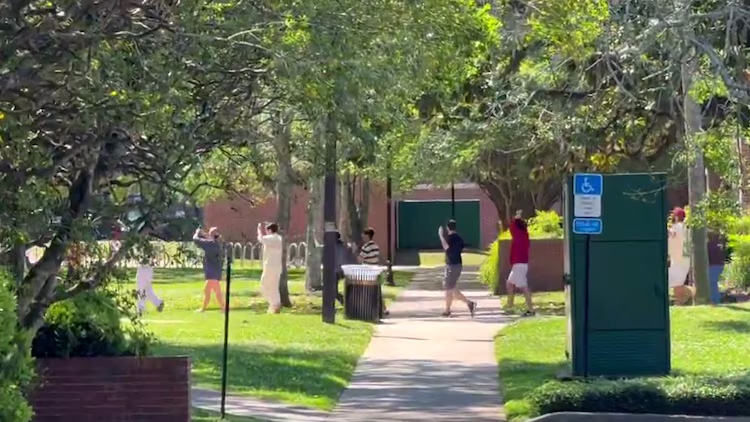Supporters to board: Let UNC law center litigate cases
CHAPEL HILL, North Carolina (WTVD) -- Supporters of the UNC Center for Civil Rights, which advocates on behalf of the poor and disenfranchised, are pleading with university system leaders to preserve its main function of litigating cases.
Practicing attorneys, UNC School of Law alumni, community advocates and clients of the center packed a public comment session with members of the board Thursday in Chapel Hill.
Stay on top of breaking news stories with the ABC11 News App
The center, which was founded in 2001, and operates on money from donations and grants, allows law students to take on social cases around the state; some have included school desegregation, environmental justice, and victims of forced sterilization.
Until the board decides whether to strip its ability to file lawsuits, they cannot litigate any new cases.
The limit on the center's work was pushed by UNC System Board Member Steve Long, a Raleigh lawyer, who argued that the center should not be allowed to bring about lawsuits against places like schools and counties.
RELATED: HOW UNC CIVIL RIGHTS CENTER HELPED ORANGE CO. NEIGHBORS
"I think that's outside of the university's mission," Long said. "We should be advising cities and counties. If they are doing something wrong, we need to tell them about it. We should not be suing them."
Mark Dorosin, Managing Attorney for the UNC Center for Civil Rights disagrees.
"Parts of the state sue other parts of the state all the time," he said. "The legislature sues the governor, schools boards sue counties, cities sue states."
Both current students and alumni have said they chose to attend law school at UNC because of the hands-on, practical experience they would get at the center.
"My training at the center was exemplary and went way beyond what is available, to my knowledge, anywhere else," said Peter Gilbert, UNC School of Law alum.
"Those students, throughout the years have been given the experience to engage in civil rights advocacy," said Will Hendricks, UNC School of Law alum. "They've litigated civil rights cases and learned things in the courtroom that they can't learn in the classroom."
NORTH CAROLINA CENTRAL ALSO AFFECTED
The litigation powers of North Carolina Central University's law clinic are also up for debate.
Jeff Neiman, Orange County Assistant District Attorney said he owed his career to the NCCU law clinic.
"I am in fact a taxpayer-funded government lawyer who represents the state of North Carolina, here to tell you that I believe this policy is not a good idea," he said.
After the public comment session, Dorosin said he thought supporters' sentiments were powerful and compelling, but pointed out only a fraction of the Board of Governors was present to hear them.
"There are some people pushing this proposal that have an agenda that is ideologically driven and those folks, I'm not sure, care about what's happening to folks in places like Halifax County and Harnett County and Duplin County," he said.
The American Bar Association requires law students to complete six hours of experiential learning.
Martin Brinkley, Dean of the UNC School of Law said if that real-world experience is taken away, the school's competitive edge will go with it.
"There would be civil rights lawyers perhaps provided only by private universities," he said. "Is that really in the interests of our state? For our public university not to be able to provide this training?"








